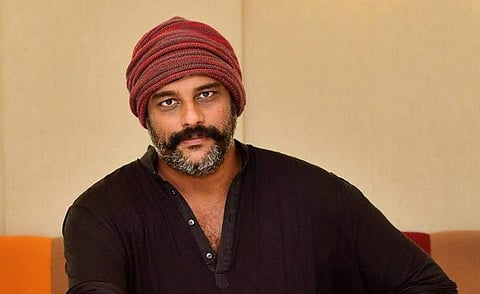

From his first screenplay for Rasikan to the recent Kammara Sambhavam, actor-writer Murali Gopy has ventured into territories other filmmakers wouldn't normally dare to. A former journalist, Murali's scripts have always had a grasp on contemporary socio-political issues and sometimes they trod the fine line between mainstream and arthouse cinema. Though his method of storytelling may not be everyone's cup of tea, none can deny that they are all interesting pieces of work. His latest work, Lucifer, which marks actor Prithviraj's directorial debut, is set to release on March 28.
Some writers find it more challenging to write a script today as they are expected to be politically correct all the time. Do you feel the same?
No. I think creativity starts right where political correctness ends. However, it is imperative that the writer is sensitive to certain social themes.
Some of your films haven't done well at the box office but they have achieved cult status later on. Why do you think audiences hesitate to watch these films in the theatre?
It is for the audience to answer this question. I have experimented with mainstream formulae in my screenplays, and so I cannot expect them to be appreciated by all. There has always been this post box office-release deluge of appreciation that comes my way. I treat that with nonchalance. For there is nothing else for either me or the film, to do with it.
How do you deal with criticism? Do you let negative reviews bother you?
Criticism, coming from well-informed sources, is always welcome. But there are many politically injected agendas that are marring the viewing and reviewing experience, these days. Genre-illiteracy is also a great blockade, among many critics today. Again, I choose to be nonchalant to it.
You seem to have a thing for epic, intellectually stimulating stories with long runtimes. In this age of shorter attention spans, do you find that a concern? Also, was there ever a compulsion to play to the gallery?
There is a time needed for each and every film to unveil itself. The question is whether the time taken is justified or not. I write according to the theme of the film. It is the thread, the content and the narrative pattern that decides the duration. Brevity, I’d say, is not a constant.
Has there ever been a time when a producer interfered with your material?
No. I have always stood my ground. And all my producers have been graceful enough not to interfere.
Sometimes it's difficult for some writers to detach themselves from their characters. Is there a small piece of you in every character you write?
Writing, for me, is akin to a spiritual process. I purge the characters of my mind as I write. All characters are freed of me and I of them, once the writing is done. And it isn't necessary that there would be a small piece of you in every character you write. There can be. There needn't be.
What has acting taught you about writing?
That writing is acting on paper, and acting... is writing on the screen.
What was the starting point for Lucifer?
I had prepared two one-lines with the title Lucifer. I had discussed the first one with the late Rajesh Pillai and Antony Perumbavoor was supposed to produce that film too. We also went on to register the title. Unfortunately, the project didn’t take off and I dropped the story.
Raju (Prithviraj) always tells me that he likes my screenplays, and his aspirations were always towards filmmaking. During the making of Tiyaan, in 2016, I told him the second one-line and he decided right away that it is going to be his directorial debut.
Did you have Mohanlal in mind when you wrote it?
It is the theme first and not the star. But once I conceived it, no other face came to my mind other than Lalettan’s.
What can you tell us about Mohanlal's character -- and, what can audiences expect from the film?
I have always felt it necessary not to talk about a film’s characters before its release, so I presume you’d excuse me there. Regarding what to expect from this film, I’d say it would be a totally mainstream movie, with relevant content. Both Raju and I are great fans of content-driven entertainers, and so we hope this film would satisfy the masses.